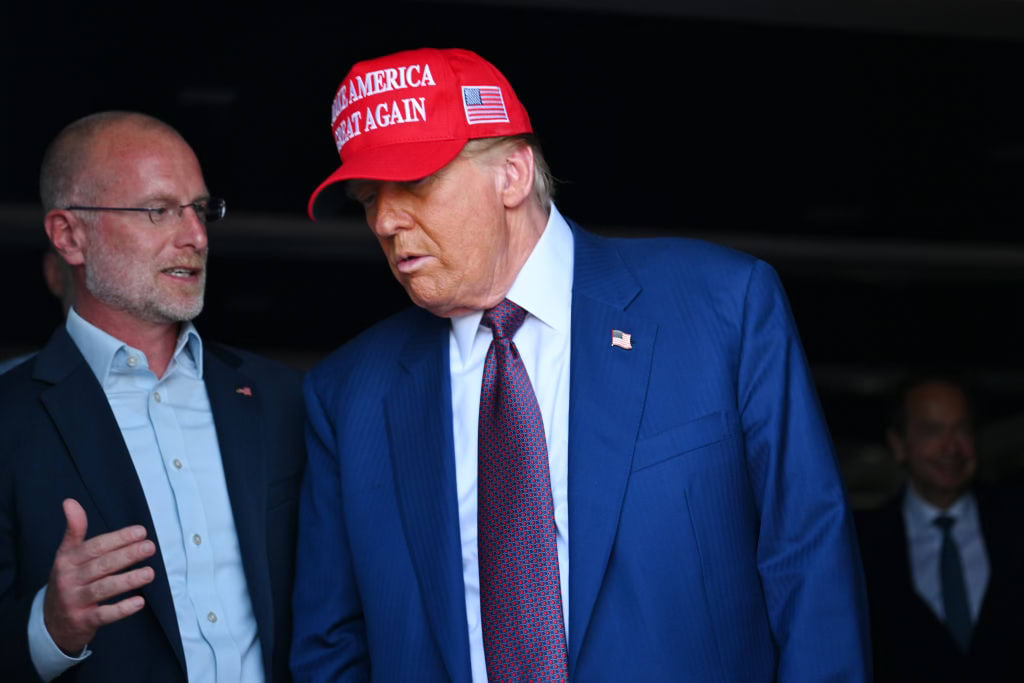5 things to know about the Sprint, T-Mobile deal
If T-Mobile's (TMUS) $26.5 billion all-stock deal for rival Sprint (S) gets regulatory approval, its impacts will be felt throughout the wireless industry. Beyond the change in competitive dynamics, with the proposed merger reducing the number of major players down to three from four now, consumers will also have a new wireless landscape to deal with.
Of course, Wall Street got the first crack at reacting to the deal's announcement, and it didn't find much to like about it, particularly its chances to pass muster with regulators. Investors sold shares of both companies on Monday, hammering smaller Sprint's stock price by nearly 14 percent and T-Mobile's by more than 6 percent. The sharp decline points to skepticism on Wall Street that the merger will win regulatory approval.
But assuming the deal does go through, it's not too soon to look at some of its key aspects. Here are five you should know about:
Sprint customers become T-Mobile customers
T-Mobile's colorful CEO John Legere, who has gained market share at his rivals' expense in recent years, will run the company under the T-Mobile name when the deal closes.
What's driving this deal?
AT&T (T) and Verizon (VZ) dominate the U.S. wireless market with 150.1 million customers and 142 million customers, respectively. T-Mobile ranks third with 73 million customers, followed by Sprint with 54 million.
"This deal makes a lot of sense from their perspective," said Jeff Kagan, an independent telecommunications analyst. "T-Mobile is growing rapidly. Sprint is having trouble with growth, but they have a lot of spectrum. The two of them together could be a powerful competitor."
Indeed, in their joint statement about the deal, Sprint and T-Mobile said as a combined company they'll have lower costs and better quality, which could essentially help them compete with AT&T and Verizon.
Will the third time be the charm?
If at first you don't succeed. . . This is actually the third merger proposal involving T-Mobile since 2011. AT&T dropped its own $4 billion bid for it that year, and Sprint and T-Mobile called off merger discussions last year because of concerns about getting approval from regulators. Critics argue that many of the same problems that were in earlier transactions haven't been addressed in the current deal.
University of Pennsylvania Law School professor Herbert Hovenkamp noted that the deal fails the U.S. Justice Department's Merger Guidelines, which measure the competitiveness of markets.
"Unless they can show significant efficiencies, the government will probably challenge it," he said.
In addition to Justice, the Federal Communications Commission will also review the merger for approval. One major hope for the combination now is that Trump administration could be more receptive to it than Obama's regulators were.
What about consumer prices?
Though the companies claim that the deal will help lead to lower prices, consumer advocates aren't so sure.
"Right now, Sprint and T-Mobile provide much-needed alternatives to Verizon and AT&T, with some innovative plans and pricing options that keep some semblance of competition alive," said Jonathan Schwantes, senior policy counsel for Consumers Union, in a press release. "If you combine these two companies, those incentives and options could dry up, and people could see prices shoot up, not only for monthly service plans but for equipment prices as well."
T-Mobile, however, does have a track record of pricing innovations, leading the way in many consumer-friendly changes, such as ditching two-year contracts and bringing back unlimited data plans. Consumers now pay less for cellphone service, thanks to T-Mobile's influence on the industry and the resulting price wars.
Is 5G the key?
In their press release, the companies repeatedly argue that they'll better be able to shoulder the costs of developing advanced wireless technologies known as 5G. However, as Phillip Berenbroick, senior policy counsel at nonprofit Public Knowledge noted, the term has no standard definition. "It has essentially been co-opted as a marketing term," he said.
AT&T is in the lead for 5G, and Verizon plans to start spending "in earnest" on the technology in 2019, according to analyst Jonathan Chaplin of New Street Research, who questions whether the race is even worth winning.
"Every carrier claims to be farthest along with 5G," he has written. "The claims are meaningless. …The race to have ubiquitous coverage is the real contest. This requires massive infrastructure investment. ..Sprint and T-Mobile are nowhere. But the real winner here is cable. They have far better infrastructure for deploying 5G than any of the four carriers."
Still, the combined company plans to invest up to $40 billion in its network in the first three years, which executives said would result in more hiring and better services.
(Story corrects the terms of the deal)



